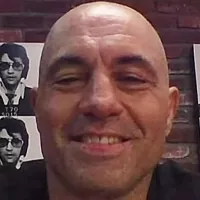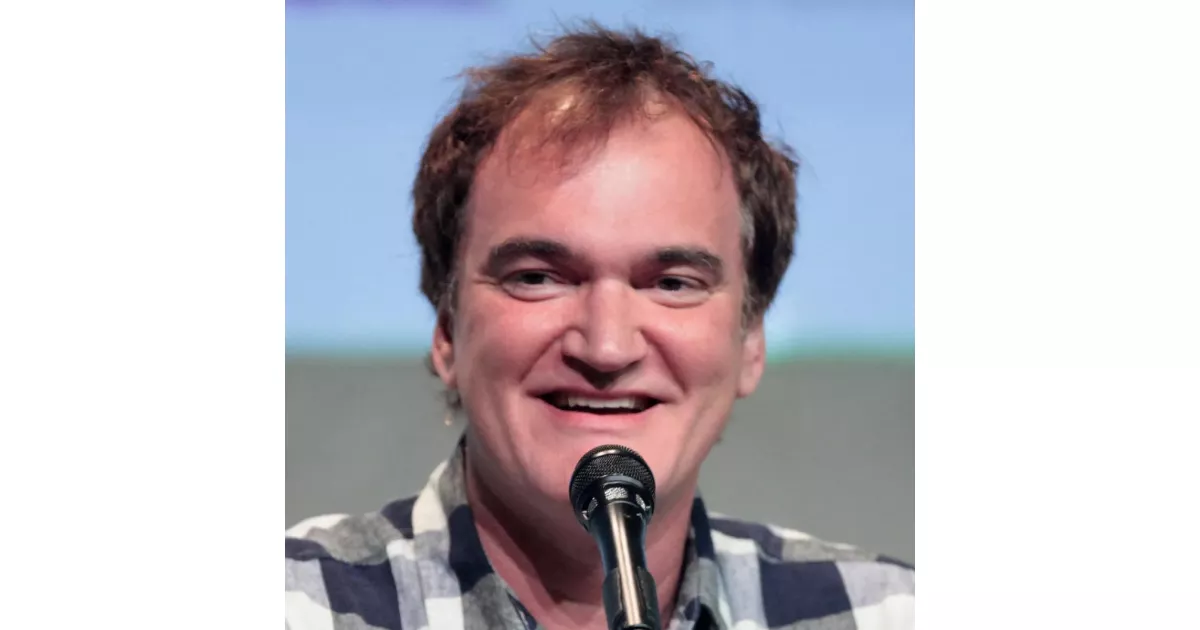Quentin Tarantino is a highly influential American filmmaker, actor, and author renowned for his distinctive cinematic style. His films are known for graphic violence, lengthy dialogue with frequent profanity, and nods to popular culture. He has garnered critical acclaim, commercial success, and a devoted cult following, earning him recognition as one of the most influential directors of his generation. Tarantino's accolades include multiple Academy Awards, BAFTA Awards, and Golden Globe Awards, and his films have collectively grossed over $1.9 billion globally.
1956: The Blood in the Water Match
In 1956, the Blood in the Water match, a water polo match between Hungary and the USSR at the Melbourne Olympics, took place. This event inspired the documentary Freedom's Fury, which Tarantino later helped produce.
1960: Jean-Luc Godard's Breathless
Jean-Luc Godard's 1960 version of Breathless is cited as a formative influence on Quentin Tarantino's work.
1960: Tarantino's View on Psycho
Quentin Tarantino considers the 1983 film Psycho II to be superior to the original 1960 film Psycho, which challenges mainstream film criticism.
1966: Moved Back to Los Angeles
In 1966, Quentin Tarantino moved back to Los Angeles with his mother after living with his grandparents in Knoxville. This move followed his mother's brief marriage and divorce from his father, Tony Tarantino.
1966: Original Broadway Production of Wait Until Dark
The play "Wait Until Dark" premiered on Broadway in 1966. In 1998, Quentin Tarantino played a role in a revival of "Wait Until Dark".
1971: Watched Carnal Knowledge
In 1971, Quentin Tarantino watched the mature movie "Carnal Knowledge". His mother allowed him to see more mature movies.
1972: Watched Deliverance
In 1972, Quentin Tarantino watched the movie "Deliverance". His mother allowed him to see more mature movies.
1973: Returned to Torrance
In 1973, Quentin Tarantino returned to Torrance after living with his grandparents in Knoxville due to his mother's misdiagnosis of Hodgkin's lymphoma.
1973: Release of Detroit 9000
In 1973, Rolling Thunder Pictures released Detroit 9000, directed by Arthur Marks.
1975: Release of Switchblade Sisters
In 1975, Rolling Thunder Pictures released Switchblade Sisters, directed by Jack Hill.
1977: Release of The Mighty Peking Man
In 1977, Rolling Thunder Pictures released The Mighty Peking Man, directed by Ho Meng Hua.
1977: Roman Polanski Charges
In 1977, Roman Polanski was charged with raping 13-year-old Samantha Geimer, an event that Quentin Tarantino controversially commented on in a 2003 Howard Stern interview.
1977: Wrote Captain Peachfuzz and the Anchovy Bandit
In 1977, at the age of 14, Quentin Tarantino wrote one of his earliest works, a screenplay called "Captain Peachfuzz and the Anchovy Bandit" that was based on the 1977 film "Smokey and the Bandit".
1977: Once Upon a Time in Hollywood sequel is set
In 1977, the sequel The Adventures of Cliff Booth to Once Upon a Time in Hollywood is set.
1977: Setting of The Movie Critic
The film The Movie Critic, which was ultimately not pursued by Quentin Tarantino, was set in 1977 and centered on a man who wrote movie reviews for a porn magazine.
1981: Influence of Blow Out and Release of Roadgames
In 1981, Brian De Palma's film Blow Out influenced Quentin Tarantino, leading him to cast John Travolta in Pulp Fiction. Additionally, Tarantino has cited the Australian suspense film Roadgames, released in 1981, as another favorite film.
1981: Release of The Beyond
In 1981, Rolling Thunder Pictures released The Beyond, directed by Lucio Fulci.
1983: Influence of Breathless Remake
In 1983, Jim McBride's remake of Breathless captivated Quentin Tarantino with its popular culture references, including the comic book Silver Surfer, inspiring him to feature the character's poster in Reservoir Dogs.
1983: Tarantino's View on Psycho II
Quentin Tarantino considers the 1983 film Psycho II to be superior to the original 1960 film Psycho, which challenges mainstream film criticism.
1986: Worked on Maximum Potential
In 1986, Quentin Tarantino got his first Hollywood job, working with Video Archives colleague Roger Avary as production assistants on Dolph Lundgren's exercise video, "Maximum Potential".
1987: Co-wrote and directed My Best Friend's Birthday
In 1987, Quentin Tarantino co-wrote and directed "My Best Friend's Birthday". It was left uncompleted, but some of its dialogue was included in "True Romance".
1987: Scott Magill Committed Suicide
In 1987, Scott Magill committed suicide, after which all film shot for "Love Birds In Bondage" was destroyed. Quentin Tarantino co-wrote the film with Scott Magill, and would go on to produce and direct the short film.
1987: Tarantino Appreciates Ishtar
Quentin Tarantino is among a few notable directors who appreciate Elaine May's 1987 film Ishtar, despite its reputation as a box-office flop.
November 19, 1988: Appeared in The Golden Girls
On November 19, 1988, Quentin Tarantino played an Elvis impersonator in "Sophia's Wedding: Part 1", an episode in the fourth season of "The Golden Girls".
January 1992: Released Reservoir Dogs
In January 1992, "Reservoir Dogs", written, directed by, and featuring Quentin Tarantino, was released as a crime thriller and screened at the Sundance Film Festival, receiving positive reviews.
1992: Acted in Eddie Presley
In 1992, Quentin Tarantino had a minor acting role in "Eddie Presley".
1993: Tarantino sells "Natural Born Killers" script
In 1993, Quentin Tarantino sold his script for "Natural Born Killers," which was significantly rewritten, leaving him with only a story credit, leading him to disown the film.
1993: True Romance Released
In 1993, Quentin Tarantino's screenplay "True Romance" was optioned and the film was eventually released.
1993: Release of Sonatine
In 1993, Rolling Thunder Pictures released Sonatine, directed by Takeshi Kitano.
1994: Uncredited Rewrite on It's Pat
In 1994, Quentin Tarantino did an uncredited rewrite on the film "It's Pat".
1994: Acted in Sleep With Me
In 1994, Quentin Tarantino had a minor acting role in "Sleep With Me".
1994: Acted in The Coriolis Effect
In 1994, Quentin Tarantino had a minor acting role in "The Coriolis Effect".
1994: Directed Pulp Fiction
In 1994, Quentin Tarantino wrote, directed, and acted in the dark comedy crime film "Pulp Fiction". He received the Academy Award for Best Original Screenplay, which he shared with Roger Avary.
1994: Release of Chungking Express
In 1994, Rolling Thunder Pictures released Chungking Express, directed by Wong Kar-wai.
1994: Feud with Denzel Washington
In 1994, Tarantino had an on-set feud with Denzel Washington during the filming of Crimson Tide over what was described as "Tarantino's racist dialogue added to the script".
1994: Palme d'Or win for Pulp Fiction
In 1994, Tarantino won the Palme d'Or at the Cannes Film Festival for "Pulp Fiction".
1995: Article angers Tarantino
In 1995, Jami Bernard published a biography that included an interview with Tony Tarantino (Quentin's biological father), which Tarantino considered tasteless.
1995: Tarantino Forms Rolling Thunder Pictures
In 1995, Quentin Tarantino formed Rolling Thunder Pictures with Miramax to release or re-release independent and foreign films.
1995: Acted in All-American Girl
In 1995, Quentin Tarantino had a minor acting role in "All-American Girl".
1995: Acted in Destiny Turns on the Radio
In 1995, Quentin Tarantino had a minor acting role in "Destiny Turns on the Radio".
1995: Participated in Four Rooms
In 1995, Quentin Tarantino participated in the anthology film "Four Rooms", directing and acting in "The Man from Hollywood".
1995: Uncredited Screenwriter for Crimson Tide
In 1995, Quentin Tarantino was an uncredited screenwriter for the film "Crimson Tide".
1995: Relationship with Mira Sorvino
In 1995, Tarantino began dating actress Mira Sorvino.
1995: Acted in Desperado
Later in 1995, Quentin Tarantino joined Robert Rodriguez again with a supporting role in "Desperado".
1996: Starred in Steven Spielberg's Director's Chair
Also in 1996, Quentin Tarantino starred in Steven Spielberg's Director's Chair, a simulation video game that uses pre-generated film clips.
1996: Acted in Girl 6
In 1996, Quentin Tarantino had a minor acting role in "Girl 6".
1996: Uncredited Screenwriter for The Rock
In 1996, Quentin Tarantino was an uncredited screenwriter for the film "The Rock".
1996: Releases of Hard Core Logo and Curdled
In 1996, Rolling Thunder Pictures released Hard Core Logo, directed by Bruce McDonald, and Curdled, directed by Reb Braddock.
1996: Acted in From Dusk till Dawn
One of Tarantino's first paid writing assignments was for From Dusk till Dawn, which Robert Rodriguez directed later in 1996, re-teaming with Tarantino in another acting role, alongside Harvey Keitel, George Clooney and Juliette Lewis.
October 1997: Assault and Lawsuit
In October 1997, Tarantino physically assaulted Don Murphy in the AGO restaurant in West Hollywood, California, after the publication of the book Killer Instinct by Jane Hamsher where she called Tarantino a 'one-trick pony'. Murphy subsequently filed a $5 million lawsuit against Tarantino; the case ended with the judge ordering Tarantino to pay Murphy $450.

1997: Miramax Shuts Down Rolling Thunder Pictures
By 1997, Miramax had shut down Rolling Thunder Pictures due to poor sales.
1997: Passed on Speed and Men in Black
Following the success of Reservoir Dogs, Tarantino was approached by major film studios and offered projects that included "Speed" and "Men in Black" in 1997, but he instead retreated to Amsterdam to work on his script for Pulp Fiction.
1997: Directed Jackie Brown
In 1997, Quentin Tarantino's third feature film "Jackie Brown", an adaptation of Elmore Leonard's novel "Rum Punch", was released. A homage to blaxploitation films, it starred Pam Grier.
1997: Spike Lee Questions Tarantino's Use of Racial Slurs
In 1997, Spike Lee questioned Quentin Tarantino's use of racial slurs, especially the N-word, in his films Pulp Fiction and Jackie Brown. Lee expressed that not all African Americans find the word "trendy or slick."
1997: Altercation with Chris Connelly
In 1997, during the Oscars ceremony, Tarantino had an altercation with Chris Connelly after Connelly tried to speak with Mira Sorvino. Tarantino verbally abused and spat at Connelly, angered by a past article that included an interview with his estranged father.
March 1998: Separation from Mira Sorvino
In March 1998, Tarantino and Mira Sorvino separated, releasing a statement that they "still love each other very much" but had reached a "mutual decision to go their separate ways."
1998: Broadway Debut in Wait Until Dark
In 1998, Quentin Tarantino made his major Broadway stage debut as an amoral psycho killer in a revival of the 1966 play "Wait Until Dark", which received unfavorable reviews for his performance from critics.
2001: Production of Iron Monkey US Release
In 2001, Quentin Tarantino produced the US release of the Hong Kong martial arts film Iron Monkey, which grossed over $14 million worldwide.
2002: Portrayed McKenas Cole in Alias
From 2002 to 2004, Quentin Tarantino portrayed villain McKenas Cole in the ABC television series "Alias".
2003: Released Kill Bill: Volume 1
In 2003, "Kill Bill: Volume 1", written and directed by Quentin Tarantino, was released.
2003: Relationship with Sofia Coppola
In 2003, Tarantino began a romantic relationship with filmmaker Sofia Coppola.
2003: Tarantino Defends Roman Polanski
In a 2003 Howard Stern interview, Quentin Tarantino defended Roman Polanski against charges of raping 13-year-old Samantha Geimer in 1977, stating that Polanski's actions were "not rape".
2004: Released Kill Bill: Volume 2
In 2004, "Kill Bill: Volume 2", written and directed by Quentin Tarantino, was released.
2004: President of Jury at Cannes Film Festival
In 2004, Quentin Tarantino attended the Cannes Film Festival, where he served as president of the jury.
2004: Production of Hero US Release
In 2004, Quentin Tarantino brought the Chinese martial arts film Hero to the US, where it opened at number one at the box office and eventually earned $53.5 million.
May 2005: Co-Wrote and Directed Grave Danger
In May 2005, Quentin Tarantino co-wrote and directed "Grave Danger", the fifth season finale of "CSI: Crime Scene Investigation".
2005: End of relationship with Sofia Coppola
In 2005, Tarantino and Sofia Coppola ended their romantic relationship.
2005: Icon of the Decade award
In 2005, Tarantino was awarded the honorary Icon of the Decade at the 10th Empire Awards.
2005: Inclusion on Time 100 list
In 2005, Tarantino was included on the annual Time 100 list of the most influential people in the world.
2006: Production of Freedom's Fury
In 2006, Quentin Tarantino and Lucy Liu helped produce the Hungarian sports documentary Freedom's Fury.
2006: Release of Hostel
In 2006, the Quentin Tarantino presentation, Hostel, opened at number one at the box office with a $20.1 million opening weekend. He also presented The Protector in the same year.
August 2007: Tarantino Cites Filipino Directors as Icons
In August 2007, during the 9th Cinemanila International Film Festival in Manila, Quentin Tarantino cited Filipino directors Cirio H. Santiago, Eddie Romero, and Gerardo de León as personal icons from the 1970s. He praised de León's films, especially Women in Cages.
2007: Tarantino on Sally Menke
In 2007, Quentin Tarantino described editor Sally Menke as "hands down my number one collaborator".
2007: Directed Death Proof
In 2007, Quentin Tarantino directed the exploitation slasher film "Death Proof", released as part of Grindhouse. It was co-directed with Robert Rodriguez.
2007: Production of Hostel: Part II
In 2007, Quentin Tarantino served as a producer for the film Hostel: Part II.
2007: Inclusion on 'Top 100 Living Geniuses' list
In 2007, Tarantino was listed on The Daily Telegraph's "Top 100 Living Geniuses".
October 2008: Filming of Inglorious Bastards Began
In October 2008, filming began on Quentin Tarantino's "Inglorious Bastards", as it was provisionally titled.
2008: Production of Hell Ride
In 2008, Quentin Tarantino produced Hell Ride, a revenge biker film helmed by Larry Bishop.
August 2009: Released Inglourious Basterds
In August 2009, Quentin Tarantino's film "Inglourious Basterds" was released, receiving positive reviews.
2009: Tarantino Discusses Retirement Plans
In 2009, Quentin Tarantino expressed his plans to retire from filmmaking at 60 to focus on writing novels and film literature. He also voiced skepticism about the film industry's transition to digital.
2009: Meeting Daniella Pick
In 2009, Tarantino met Daniella Pick in Israel while promoting Inglourious Basterds.
2009: Threats to David Letterman
In 2009, prior to a scheduled appearance on Late Show with David Letterman to promote Inglourious Basterds, Tarantino angrily threatened Letterman after the host made jokes about Tarantino's former girlfriend. Tarantino threatened to "beat [Letterman] to death" after Letterman joked about why a 'glorious movie star' would date a 'little squirrelly guy'.
February 2010: Tarantino Buys New Beverly Cinema
In February 2010, Quentin Tarantino bought the New Beverly Cinema in Los Angeles. He allowed the previous owners to continue operating it, making occasional programming suggestions and ensuring films shot on 35 mm would be shown.
2010: Death of Sally Menke
In 2010, Sally Menke, who worked on all of Quentin Tarantino's films until her death, passed away. She was described by Tarantino as his "number one collaborator".
2011: Music+Film Award
In 2011, Quentin Tarantino was recognized at the 16th Critics' Choice Awards with the inaugural Music+Film Award for his choice of music in films, which often includes songs from the 1960s and 70s.
2011: Honorary César Award
In 2011, Tarantino was given an Honorary César by the Académie des Arts et Techniques du Cinéma.
2011: Production Begins on Django Unchained
In 2011, production began on Django Unchained, a film about the revenge of a former slave in the Southern United States in 1858. The film originated from Tarantino's desire to create a Spaghetti Western set in America's Deep South.
December 2012: Release of Django Unchained
In December 2012, Django Unchained was released, becoming Quentin Tarantino's highest-grossing film to date. He also received his second Academy Award for Best Original Screenplay for the film.
2012: Lifetime achievement award from Rome Film Festival
In 2012, Tarantino received a lifetime achievement award from the Rome Film Festival.
2012: Tarantino Lists Favorite Films
In the 2012 Sight & Sound directors' poll, Quentin Tarantino listed his 12 favorite films, including Apocalypse Now, The Bad News Bears, Carrie, Dazed and Confused, The Great Escape, His Girl Friday, Jaws, Pretty Maids All in a Row, Rolling Thunder, Sorcerer, Taxi Driver, and The Good, the Bad and the Ugly.
November 2013: Tarantino Announces New Western Film
In November 2013, Quentin Tarantino announced he was working on a new Western film, though not a sequel to Django Unchained.
2013: Most-studied director in the UK
In 2013, a survey revealed that Tarantino was the most-studied director in the United Kingdom, based on references in film essays and dissertations.
2013: Tarantino refuses to answer violence questions
In 2013, during an interview on Channel 4 News while promoting Django Unchained, Tarantino reacted angrily to questions about the link between movie violence and real-life violence, refusing to elaborate on the topic.
January 11, 2014: Title of New Film Revealed
On January 11, 2014, it was revealed that Quentin Tarantino's new film would be titled The Hateful Eight.
January 2014: The Hateful Eight Script Leak
In January 2014, the script for The Hateful Eight was leaked. Quentin Tarantino, upset by the breach, considered abandoning the production and publishing it as a novel instead. He had shared the script with Bruce Dern, Tim Roth, and Michael Madsen.
April 19, 2014: Live Reading of The Hateful Eight Script
On April 19, 2014, Quentin Tarantino directed a live reading of the leaked script for The Hateful Eight at the United Artists Theater in the Ace Hotel Los Angeles. He mentioned that he was working on two new drafts with different endings.
2014: Tarantino's Active Role at New Beverly Cinema
Starting in 2014, Quentin Tarantino took a more active role in programming film screenings at the New Beverly Cinema, showcasing his own films and prints from his personal collection.
January 2015: Filming of The Hateful Eight Commences
In January 2015, filming of The Hateful Eight commenced as planned, using a new draft of the script.
October 2015: Speech at anti-police brutality rally
In October 2015, Tarantino attended a rally in New York protesting police brutality and gave a speech condemning murder and police brutality.
December 25, 2015: The Hateful Eight Roadshow Release
On December 25, 2015, The Hateful Eight was released as a roadshow presentation in 70 mm film-format theaters.
December 30, 2015: The Hateful Eight Digital Release
On December 30, 2015, The Hateful Eight was released in digital theaters, following its roadshow release.
2015: Support for Barack Obama and Black Lives Matter
In 2015, Tarantino voiced support for Barack Obama as his favorite president and for the Black Lives Matter movement.
June 30, 2017: Engagement to Daniella Pick
On June 30, 2017, Tarantino became engaged to Israeli singer Daniella Pick.
July 2017: Tarantino to Direct Manson Family Murders Film
In July 2017, it was reported that Quentin Tarantino's next project would be a film about the Manson Family murders.
October 18, 2017: Tarantino discusses Harvey Weinstein allegations
On October 18, 2017, Quentin Tarantino gave an interview addressing the sexual harassment and assault allegations against producer Harvey Weinstein, stating that his then-girlfriend Mira Sorvino had shared her experience with Weinstein in the mid-1990s and that Tarantino had confronted Weinstein at the time.
2017: Weinstein scandal
In 2017, the Harvey Weinstein sexual assault scandal broke, causing Tarantino to reflect on his past relationship with Weinstein, whom he had once admired as a mentor and career booster.
February 3, 2018: Uma Thurman accuses Weinstein, Tarantino responds
On February 3, 2018, Uma Thurman, actress in Kill Bill, told The New York Times that Weinstein had sexually assaulted her, and she reported this to Tarantino. Tarantino confronted Weinstein, as he had previously when Weinstein made advances on his former partner, demanding he apologize, and banned him from contact with Thurman for the remainder of the film's production.
February 2018: Once Upon a Time in Hollywood Announced
In February 2018, it was announced that the film about the Manson Family murders would be titled Once Upon a Time in Hollywood. Leonardo DiCaprio was cast as Rick Dalton, Brad Pitt as Cliff Booth, and Margot Robbie as Sharon Tate.
November 28, 2018: Marriage to Daniella Pick
On November 28, 2018, Tarantino married Daniella Pick in a Reform Jewish ceremony in their Beverly Hills home.
2018: Tarantino Apologizes for Polanski Comments
In 2018, Quentin Tarantino apologized for his 2003 comments defending Roman Polanski, stating that he realized how wrong he was and that he incorrectly played devil's advocate. His initial interview resurfaced and drew criticism, including from Samantha Geimer.
July 2019: Release of Once Upon a Time in Hollywood
In July 2019, Sony Pictures theatrically released Once Upon a Time in Hollywood, which premiered at the 2019 Cannes Film Festival. The film received critical acclaim and earned 10 Oscar nominations.
2019: Tarantino rejects hypothesis about Margot Robbie's lines
In 2019, at the Cannes Film Festival during the Once Upon a Time in Hollywood press conference, Tarantino responded indignantly to a journalist's question about why Margot Robbie had so few lines in the film, stating "I just reject your hypothesis".
January 2020: Splitting time between Tel Aviv and Los Angeles
As of January 2020, Tarantino and Daniella Pick were splitting their time between Tel Aviv and Los Angeles, leading Tarantino to attempt learning Hebrew.
February 22, 2020: Birth of First Child
On February 22, 2020, Tarantino and Daniella Pick's son was born in Israel.
June 2020: Tarantino Becomes Rotten Tomatoes Critic
In June 2020, Quentin Tarantino became an officially recognized critic on the review aggregation website Rotten Tomatoes, and has published over 30 film reviews on his New Beverly Cinema website.
2020: Book deal with HarperCollins
In 2020, Tarantino signed a two-book deal with HarperCollins, marking his venture into novel writing.
June 2021: Podcast announcement with Roger Avary
In June 2021, Tarantino announced his plans to start a podcast with Roger Avary, named after Video Archives, a video rental store where they both worked.
June 2021: Atheist declaration
In June 2021, Tarantino declared that he was an atheist.
June 2021: Novelization of Once Upon a Time in Hollywood published
In June 2021, Tarantino published his first novel, a novelization of his film "Once Upon a Time in Hollywood". It received positive reviews.
June 2021: Tarantino regrets not pressing Weinstein further
In June 2021, on the Joe Rogan Experience podcast, Tarantino expressed regret for not pressing Harvey Weinstein further regarding his misconduct, admitting that he did not know the full extent of Weinstein's actions before the 2017 scandal.
2021: Tarantino Buys Vista Theatre
In 2021, Quentin Tarantino announced that he had purchased the Vista Theatre in Los Angeles, intending to keep it a first-run theater showing only movies on film, similar to The New Beverly.
July 3, 2022: Birth of Second Child
On July 3, 2022, Tarantino and Daniella Pick's daughter was born in Israel.
July 19, 2022: Podcast Premiere
On July 19, 2022, the Video Archives podcast premiered, featuring Tarantino, Roger Avary, and occasional guests examining films that could have been offered for rental at the store.
November 1, 2022: Publication of "Cinema Speculation"
On November 1, 2022, Tarantino published "Cinema Speculation," a book about films of the New Hollywood era, inspired by film critic Pauline Kael.
November 2022: Tarantino Plans Eight-Episode Television Series
In November 2022, Quentin Tarantino revealed plans to shoot an eight-episode television series in 2023. Further details were not provided at that time. This project later became The Movie Critic.
October 7, 2023: Visit to Israeli military base
On October 7, 2023, in response to the Hamas-led attack on Israel, Tarantino visited a military base in southern Israel to "boost the morale" of Israeli troops.
2023: Planned Television Series in 2023
In 2023, Quentin Tarantino had planned to shoot an eight-episode television series, which later evolved into The Movie Critic. However, he ultimately decided not to pursue the project in either format.
August 2024: Endorsement of Kamala Harris
In August 2024, Tarantino expressed his intention to vote for Democratic presidential nominee Kamala Harris in the 2024 presidential election on Bill Maher's podcast Club Random.
January 2025: Tarantino Discusses Final Film
In January 2025, at the Sundance Film Festival, Quentin Tarantino stated that he was in "no hurry" to make his final film. He preferred to wait at least a year and focus on writing a stage play first.
December 2025: Criticism of Paul Dano's acting
In December 2025, during The Bret Easton Ellis Podcast, Tarantino criticized Paul Dano's performance in There Will Be Blood, calling him "a weak, uninteresting guy", "the weakest male actor in SAG", and "the limpest dick in the world", leading to backlash from others in the film industry.
2025: Achievements of directors for 'the Big Four' awards
As of 2025, Tarantino is one of five directors to sweep 'the Big Four' critics awards (LA, NBR, NY, NSFC) for his work on Pulp Fiction.
2026: The Adventures of Cliff Booth release
In 2026, The Adventures of Cliff Booth was released, a sequel to Once Upon a Time in Hollywood set in 1977, written and produced by Tarantino but directed by David Fincher.
Mentioned in this timeline

Joe Rogan is an American podcaster comedian and UFC color...

Howard Stern is a renowned American radio personality recognized for...

Steven Spielberg is a highly influential American filmmaker recognized as...

Margot Robbie is a highly acclaimed Australian actress and producer...

Kamala Harris is an American politician and attorney She served...

Sony is a Japanese multinational conglomerate based in Tokyo Its...
Trending

20 minutes ago Priyanka Chopra stuns in Dior and Gaurav Gupta at 'The Bluff' premiere.
20 minutes ago Puerto Vallarta: Vehicle Fires and Roadblocks Disrupt Sunday Morning

20 minutes ago Sundar Pichai envisions AI's transformative potential, focusing on India and global connectivity.

20 minutes ago Rhys Hoskins Reportedly Set to Join Cleveland Guardians After Phillies Departure.

21 minutes ago Tate McRae stuns in Victoria's Secret dress, linked to Jack Hughes.

21 minutes ago Norah O'Donnell highlights unsung heroines in "We the Women" and celebrates Women's History.
Popular

Jesse Jackson is an American civil rights activist politician and...

Barack Obama the th U S President - was the...

Bernie Sanders is a prominent American politician currently serving as...

Ken Paxton is an American politician and lawyer serving as...

Michael Joseph Jackson the King of Pop was a highly...
WWE Raw a professional wrestling television program by WWE airs...


